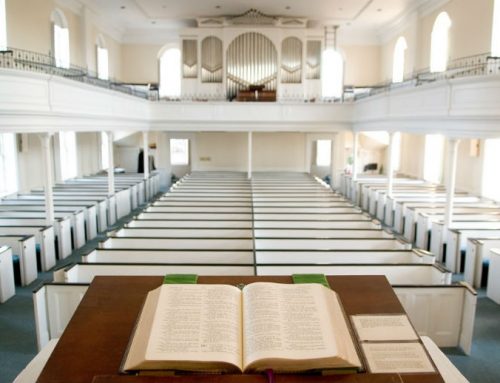In today’s sermon, entitled “The Melian Debate,” I am posing two differing ways of thinking about history – and I might add, different understandings of international and political relations among human beings. Today’s sermon offers the invitation for us to become, for this week, armchair historians and political scientists, as we also seek to examine these issues in light of the revelation of God’s truth in scripture.
The first way of thinking is illustrated by the historiographic approach of Herodotus, the ancient Greek historian. His approach to history held that it indeed gives evidence of a moral structure in human relationships – which he shows in his primary work detailing the history of the Greco-Persian war in the early 5th Century BCE. In that work he makes the claim that the strength of Athenian democracy lies in its embodiment of the ideals of freedom and “equality under the law,” which inspire people to “their own cause.”
Contrary to this way of thinking is Thucydides, who sought to strip the telling of history of all talk of values and morality, or what the gods may be up to, in favor of simply allowing history to teach its own lessons. He is considered the father of modern political science, in that he sought to show how human beings interact, not how the gods are controlling the score.
Thucydides poses the question as to whether history is driven not by values or the hand of heaven, but by more human considerations. His exploration of this question is illustrated in a section of his “History of the Peloponnesian War” called The Melian Dialogue. In it, he seems to show the foolishness of an appeal to a values-based reading of history. Though the Melians may be righteous and noble in deciding to defend their homeland against tyranny – in the faith that heavenly justice will favor their admittedly weaker forces in the battle – Thucydides means to show that it’s power, and not values, that drive relations among people. His point can be summarized by the familiar phrase, “Might makes right.” Authority ultimately derives from the point of a gun. And morality is a function of power.
This contrasts, of course, with the biblical text under consideration: the story of David and Goliath in 1 Samuel 17. The telling of history in the Old Testament (we ought to consider the writers of the Old Testaments as the parents of history, since their writing predates Thucydides and Heroditus by several hundred years!) serves to illustrate Herodotus’ point: that history IS full of moral lessons. God grants authority and efficacy to a King based on his conformity with standards of rightness and justice – usually in the form of obedience to God, the source of all goodness and power. “[Insert the name of King here] did what was right in the sight of the Lord…” was the recipe for successful exercise of power, or the opposite if the condition was not met. Here, the opposite claim is in play: “Right makes might.”
David’s defeat over Goliath serves to illustrate that “God saves not by sword or spear, but the battle is the Lord’s.”
So which reading of history is correct? Is it true that the world operates in the way that Thucydides posits? Does “might make right?” Or is our strength in the higher values we seek to embody?
Does, as Martin Luther King claims, “history have a long arc, but it bends toward justice”?
Moreover, whatever the reality might be, is it possible to choose the view of history according to which you – we – will live? Even if we live in a world where human relations are governed by the maxim “Might makes Right,” would you want to live your life on that basis (a rather cruel and cynical formula, for my money)? Is there indeed another world we’re invited to live in – in fact, the world announced by Jesus when he said “The Kingdom of God is at hand”? A world described in the Sermon the Mount?
And finally – is it ever a “pure play”? Must we say that life is really a combination of both? Of might that forms our moral judgments, and moral judgments that form our opinion on the right use of power and authority?
Such a conversation, though I did not mention it in the sermon, is really taking place on our national stage. One could say that it is a debate between an understanding of how history works embraced by the previous administration, and that of our current one. Mr. Obama seems to make the claim that our greatest strength lies in the embodiment of our ideals – who also referenced the MLK quote referenced above in a recent speech. Does he mean it, or is it Realpolitik cloaked in good rhetoric (of which Thucydides’ Athenians would be proud)?
What do you think?
Onward!
(PS – would encourage folk to find links to illustrate the points above…. If you do, I’ll add them to the entry. Didn’t have time with this original post to do so).




